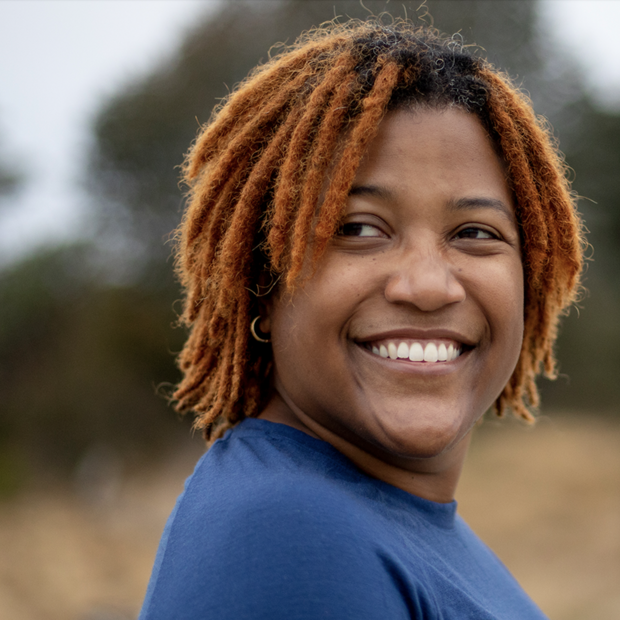“Powdered Feet” is a nickname I earned at a young age from my father which describes someone so active that you never see them — just the footprints of where they’ve been in powder. I just can't help myself; I want to learn and explore.
Our move was the result of several factors. I knew from living in the Bronx, “the poorest Congressional district in the country,” that it was not the place I wanted my son to grow up. But also, and more important, we wanted to create a life for our son that would allow him greater access to and comfort in the outdoors. The privilege of being able to leave the Bronx was not lost on my partner and me — our environmental migration is one many people cannot make, nor should they have to. But as a lover of the outdoors and a long-distance runner, I jumped at the opportunity to make Seattle home.
My first question after arriving was “Where are all the Black people?” Having come from New York City, I was accustomed to seeing members of the African Diaspora everywhere. Early in my life as a Pacific Northwesterner, I was focused almost solely on how white it is here, a reaction that actually contributes to the erasure of Black people. Because, as I learned, there are Black people here.
I quickly learned that the Central District was once Seattle’s Black neighborhood, due to racial restrictions preventing Black people from buying homes in most other parts of the city. However, I also learned that over the past 40 years, the Central District has almost completely transformed, and is now largely unrecognizable and unaffordable to the same Black people who had once been zoned out of more resourced neighborhoods.
From there, I started to search for ways to meet some of these people. I wondered if I’d find a community of runners and outdoors people who looked like me and would be interested in building community. I pretty quickly found Club Seattle Runners Division, a BIPOC-led running community that welcomed me with open arms. I had found my people.
Inspired, I kept digging. I knew that the PNW was the so-called outdoor mecca of the United States, and I wanted to do all the activities it was known for. All the things I had grown up hearing Black people didn’t do: swimming, kayaking, fly fishing. To my great surprise and delight, I found organizations all over the PNW that were led by Black, Indigenous or other people of color who were both claiming and reclaiming outdoor space and doing all of the things.
Despite all the barriers — historical erasure, intimidation and racism, limited access to resources — Black and brown people in the PNW were taking up space, and doing so without permission or apology. Through the 10 episodes of this season of Out & Back, I am going to introduce you to some of them. But first, I’d like you to know a little more about me and my family.
For more from this episode, listen to the Out & Back podcast. You can find it on Spotify, Apple Podcasts, Amazon or wherever you get your podcasts.


